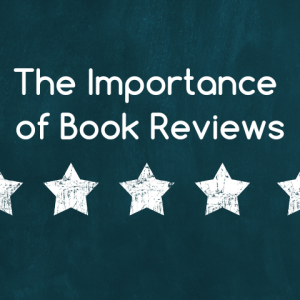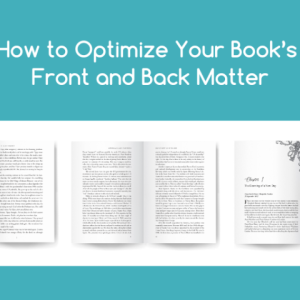We get a lot of questions about editing here at Bublish. Among other things, writers wonder what type of editing they need for their book, how much editing costs, and how long it takes to go through a particular phase of editing. With all these questions in mind, we’ve put together this overview of the editing process along with the details that will answer most of your questions.
Developmental Editing
A Developmental Edit is the highest level of editing. In traditional publishing houses, all manuscripts go through rigorous Developmental Editing. Unfortunately, many independent authors skip this phase of editing, thinking it’s unnecessary or too expensive. From where we sit—immersed in the world of books everyday—we see very few books become commercially successful without Developmental Editing. It’s the first, crucial phase of editing.
During Developmental Editing, the editor is working on the structure of the narrative, character development, plot, themes, tension, and pacing. Typically, this type of edit strives to make the work more marketable to a specific audience. This is why it is important to work with a Developmental Editor who knows your genre or topic well. Effective Developmental Editing often requires collaboration between the editor and the writer. There may be disagreements or concerns about a scene or character. This friction is important to create the best possible manuscript, but it can often be taxing for the author. One should always enter a Developmental Edit with an open mind and a willingness to see the work through new eyes. Remember, even when disagreements arise, you and the editor are on the same side. It is the editor’s job to enrich your manuscript before it goes to market.
A Developmental Edit typically begins with a complete draft manuscript. Depending on the length of your manuscript and the complexity of the story (both fiction and nonfiction), writers can expect a Developmental Edit to take anywhere from one to three months. Depending on your contract with the editor or editorial company, there may be one or more rounds of editing before the Developmental Edit is complete. Developmental Edits are often returned not only with markup to the Microsoft Word document, but with an editorial report to summarize the editor’s findings and suggestions.
Developmental Editors can charge per word, per page or per hour. Average rates are between $.07 and $.12 per word or $7.50 to $20 per page, though rates can vary. Turnaround time can vary by editor, too. But a seasoned Developmental Editor can turn a manuscript around in a month to six weeks—sometimes faster.
At Bublish, we work with top, professional editors and price our projects by the word. Developmental Editing is a financial commitment, but one that can turn a good manuscript into a great book. “Bublish matched me with an editor who understood historical fiction and respected my writing style,” says Sandra Wagner-Wright, author of Two Coins, which was selected by Kirkus as one of The Best Indie Books of 2019. “I couldn’t be happier!”
Line Editing
Once the structure of the manuscript is solid, a Line Edit addresses the story’s language and flow at the sentence and paragraph level. A Line Editor considers the author’s word choices, the rhythm of the narrative, and the overall strength and variety of the sentence and paragraph structures.
This edit relies heavily on the use of Word’s comment feature. Editors will typically leave substantive comments throughout the manuscript. In a Line Edit, emphasis is on use of language that is clear, fluid, and pleasurable to read. Tone, pace, description, and voice are all assessed during a Line Edit. While comments about the books overall structure or tone may be included, a Line Edit is not structural. Should you require a more in-depth level of editing to assess plot or character development, for example, a Developmental Edit is recommended.
Since collaboration is not a requirement, it is not as common for a Line Editor to schedule a call with an author client. Line Editing rates are typically per word or per page and range from $.04 to $.06 per word or $5 to $15 per page. A good average is $.06 per word or $12 per page. Turnaround time is typically two to three weeks.
Copyediting
At Bublish, our editors adhere to The Chicago Manual of Style and Merriam-Webster dictionary. In a copyedit, the goal is to eliminate redundancy, spelling, and grammar errors as well as punctuation and syntax problems. A copyeditor may also make limited comments about internal consistency of the plot, setting, or characterizations. However, for an in-depth review of these aspects of your manuscript a Line Edit or Developmental Edit might be required.
Copyedits are returned to you by way of a Microsoft Word document with track changes. The average rate for copyediting costs between $.019 and $.04 per word, or $2.50 to $5 per page.
Proofreading
Once your manuscript has been through multiple edits and has been finalized, the final step is Proofreading. A final proofread should be done for the entire manuscript in Word and for some titles, especially where visuals can impact the text, a second proofread should be done after the book’s layout is complete.
Proofreading is designed to catch any typos or errors that were missed or mistakenly inserted during the copyedit. Edits are returned to you by way of a Microsoft Word document with track changes. As the author, you will accept or reject each suggested proof edits. A basic proofread of a manuscript usually costs between $.01 and $.02 per word. Some proofreaders charge by the manuscript page. A range of $1.50 to $3.50 per page is typical.
If you’re interested in learning more about Bublish’s editing services or other author services (book cover design, layout, eBook conersion, marketing and more), click the image below and fill out the form.





